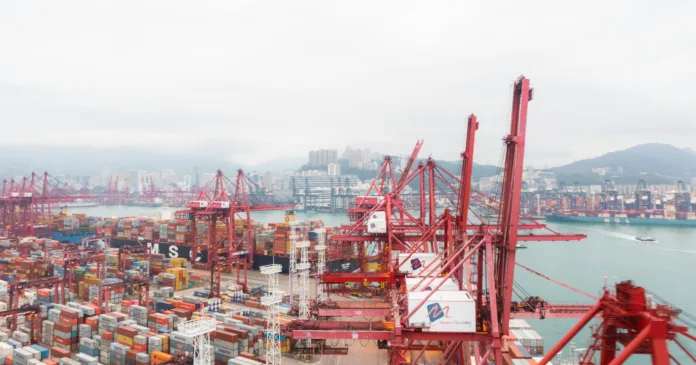Saudi supply chain deals boost logistics and export potential in copper, aluminium, and rare earths under Vision 2030
Saudi Arabia has inked nine major agreements worth SR35 billion ($9.31 billion) to bolster its supply chain resilience and enhance global trade connectivity. The deals, signed during the Global Supply Chain Resilience Initiative (GSCRI) forum in Riyadh, reflect the Kingdom’s ambitious push to diversify its economy and solidify its position as a global logistics powerhouse.
Saudi Investment Minister Khalid Al-Falih highlighted the changing dynamics of global trade, noting that while globalisation remains, it is evolving into a phase marked by regionalisation and the clustering of supply chains. “This shift presents opportunities for Saudi Arabia to play a central role in the new global economic landscape,” Al-Falih stated.
A Diverse Range of Agreements
The deals span critical sectors, including copper smelting, aluminium production, and rare earth processing. These initiatives align with GSCRI’s overarching goal of attracting SR150 billion in export-driven investments by 2030, underpinning Saudi Arabia’s Vision 2030 objectives.
The Saudi Supply Chain Deals include a venture with Vedanta for copper smelting, refining, and rod production, along with a collaboration between the Advanced Metals Industries Cluster and Tasnee to advance titanium projects. Additionally, Hastings is partnering with the Kingdom to establish rare earth processing facilities, which is crucial for the development of future technologies.
In the aluminium sector, Red Sea Aluminum will develop semi-finished aluminium plants, while Tahweel will construct an aluminium foil rolling plant. Further investments include zinc smelting projects with Moxico, a platinum group metals smelter with Ajlan & Bros and Platinum Group, and a lithium carbonate extraction project alongside a copper refinery with Zijin Group.
Embed from Getty ImagesA Landmark Solar Thermal Project
One of the forum’s standout announcements was the agreement with GlassPoint to establish a cutting-edge manufacturing facility. This project represents the first step toward constructing the world’s largest industrial solar thermal project, a testament to Saudi Arabia’s commitment to advancing renewable energy solutions. The innovative facility will leverage solar power to support industrial processes, reducing carbon emissions and enhancing the Kingdom’s sustainability efforts.
Logistics Performance and Strategic Vision
Saudi Arabia’s strides in logistics were highlighted during the forum, with the Kingdom’s 17-place leap to 38th position in the World Bank’s 2023 Logistics Performance Index. This improvement underscores the Kingdom’s dedication to enhancing its infrastructure, regulatory environment, and trade facilitation.
Al-Falih emphasised the strategic importance of these agreements, noting that they are not merely transactions but key components of Saudi Arabia’s long-term vision to create a resilient, diversified economy. “These partnerships are critical in positioning the Kingdom as a global hub for manufacturing and logistics,” he added.
The GSCRI forum serves as a platform for Saudi Arabia to showcase its potential as a nexus for global supply chains. By leveraging its geographic location, robust infrastructure, and pro-business environment, the Kingdom is poised to attract further investment and foster economic growth.
Vision 2030: Driving Diversification and Innovation
These latest agreements are part of Saudi Arabia’s broader strategy to diversify its economy beyond oil and create a sustainable, innovation-driven industrial base. Vision 2030, the Kingdom’s transformative economic blueprint, emphasises the development of strategic sectors such as mining, manufacturing, and renewable energy.
The partnerships signed at the GSCRI forum will not only enhance the Kingdom’s industrial capabilities but also contribute to global supply chain stability. The focus on critical minerals, such as copper, titanium, and rare earths, highlights Saudi Arabia’s role in supporting the global transition to a low-carbon economy.
